Chef Joachim Splichal presides over his army of prep cooks, watching a machine in motion, an engine that churns out over twelve thousand plates to four thousand-plus eager guests in their finery. Some carry new golden accessories, because the sixty-ninth Emmy Awards telecast has just concluded.
Across from Splichal, Corporate Executive Chef Gregg Wiele, who likens some of his experience (and attributes some of his success) in the kitchen to his training at the Air Force Academy, commands the fleet before him. Both are veterans of the Governors Ball—Splichal having spearheaded all twenty-two of the past Patina Restaurant Group-catered events, and Wiele with eighteen under his belt.
While the night may be a familiar march to many of the perennial staff, a few new faces pepper the crowd of 250 cooks. They belong to graduates of L.A. Kitchen, a multi-tiered non-profit that teaches culinary skills to new cooks formerly incarcerated, aging out of the foster system, or homeless. With guests arriving from the red carpet just on the other side of the wall, each one of them stoops, concentrating on perfecting the dishes the television stars will soon enjoy.
They’re all acutely aware of the clock—the most important fixture in pulling off the largest formal seated dinner in North America. “It’s all about timing, timing, timing!” Chef Splichal emphasizes. Orchestrated to the minute, the massive undertaking now runs so smoothly he jokes that his own role has been reduced to garnish: “[I’m] only here [to plate] the parsley.” Regardless of having a second in command with air-force level experience or a seasoned brigade to execute orders, the mission is anything but on auto-pilot. “If you don’t have the intensity, it can go all wrong,” Splichal continues. “You have to be focused.”
That focus begins long before casting a single nomination for any category. Along the lengthy lead up, a collection of calculated moves and strategies merge to finally create the Emmy Awards Governors Ball in September.
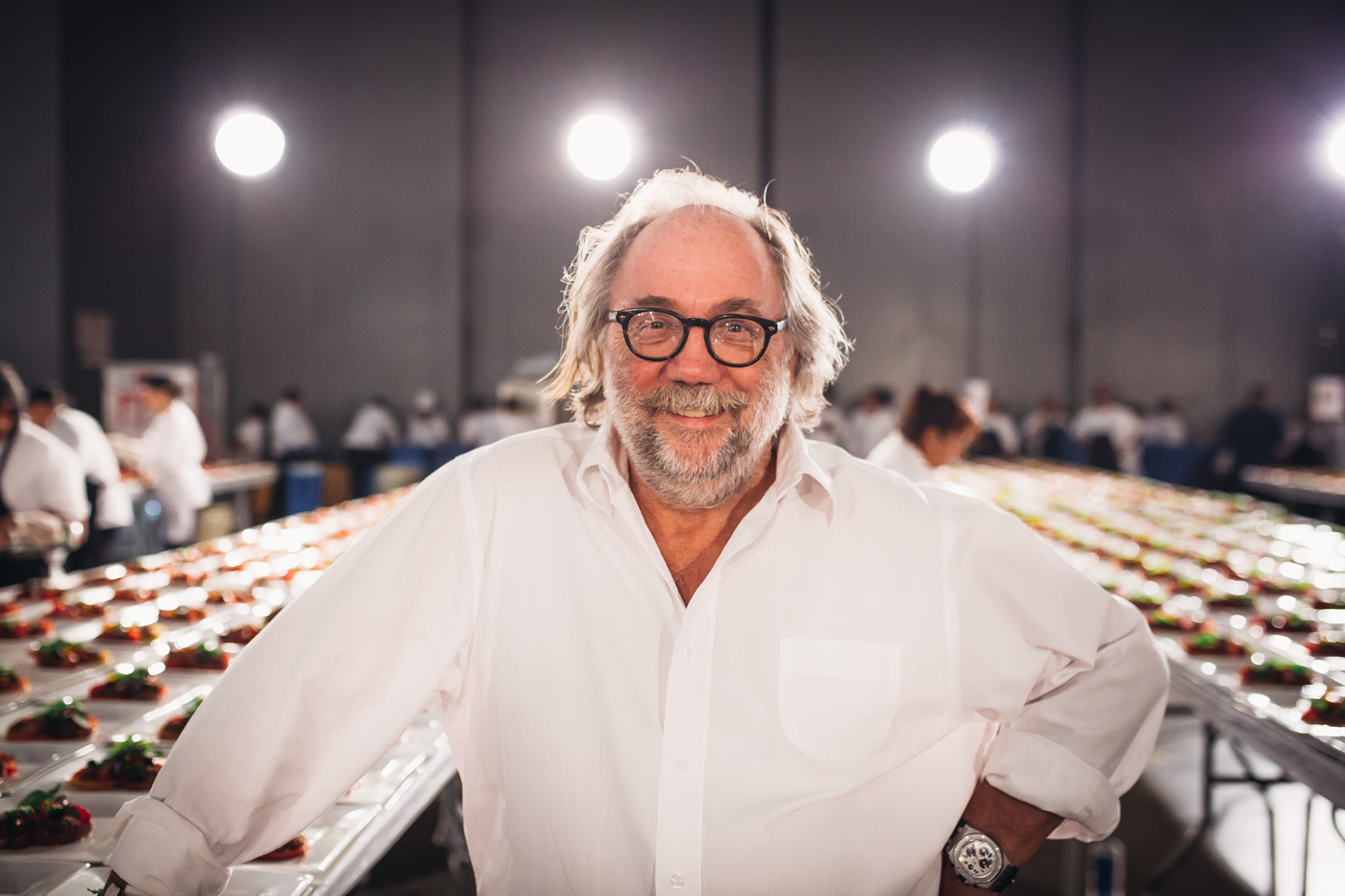

February
More than six months before a single statue is awarded, menu prep starts. Brainstorming sessions produce ideas for ten salads, twenty-five entrees, and five desserts. After careful culling, two finalists in each category go fork-to-fork in a tasting with the Television Academy committee. Once champions are chosen, sourcing of the ingredients commences. The scale of the meal requires enlisting local farmers to grow crops specifically for each dish. This year’s salad requires 4,250 pounds of three different varieties of heirloom tomatoes, and those tomatoes must be planned for and planted three months in advance to harvest the Thursday before the awards.
It is all part of the story Wiele wants with each ingredient, and his desire to reconnect people with their food. “A lot of folks have a misconception of where their food comes from. They don’t realize [it] was actually grown in dirt, it was picked and put on a truck and driven somewhere to be washed and cut.”
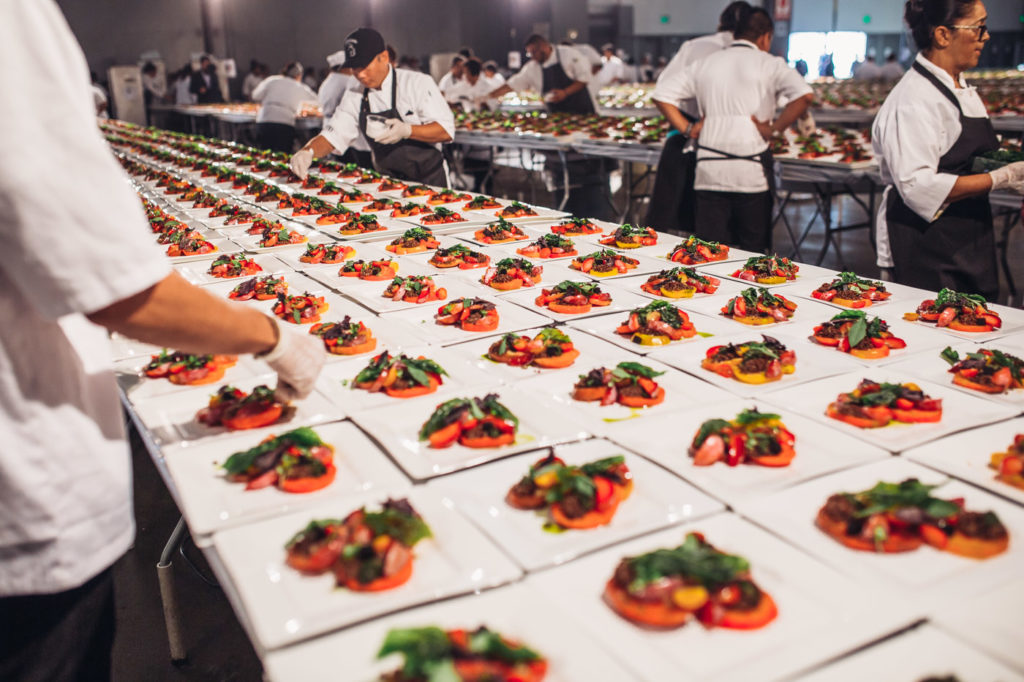
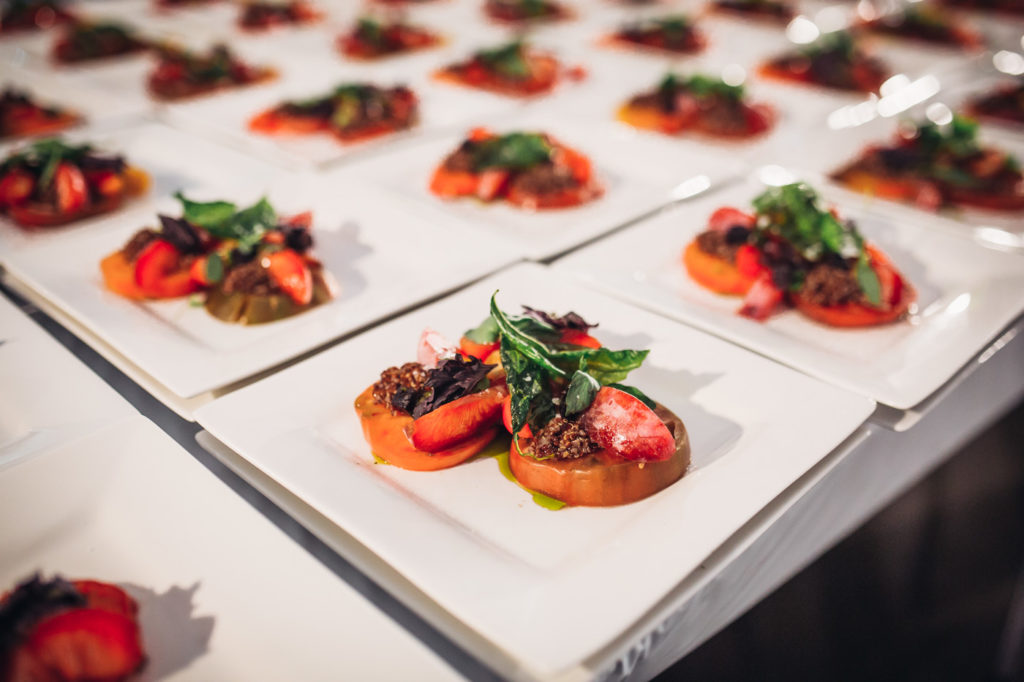
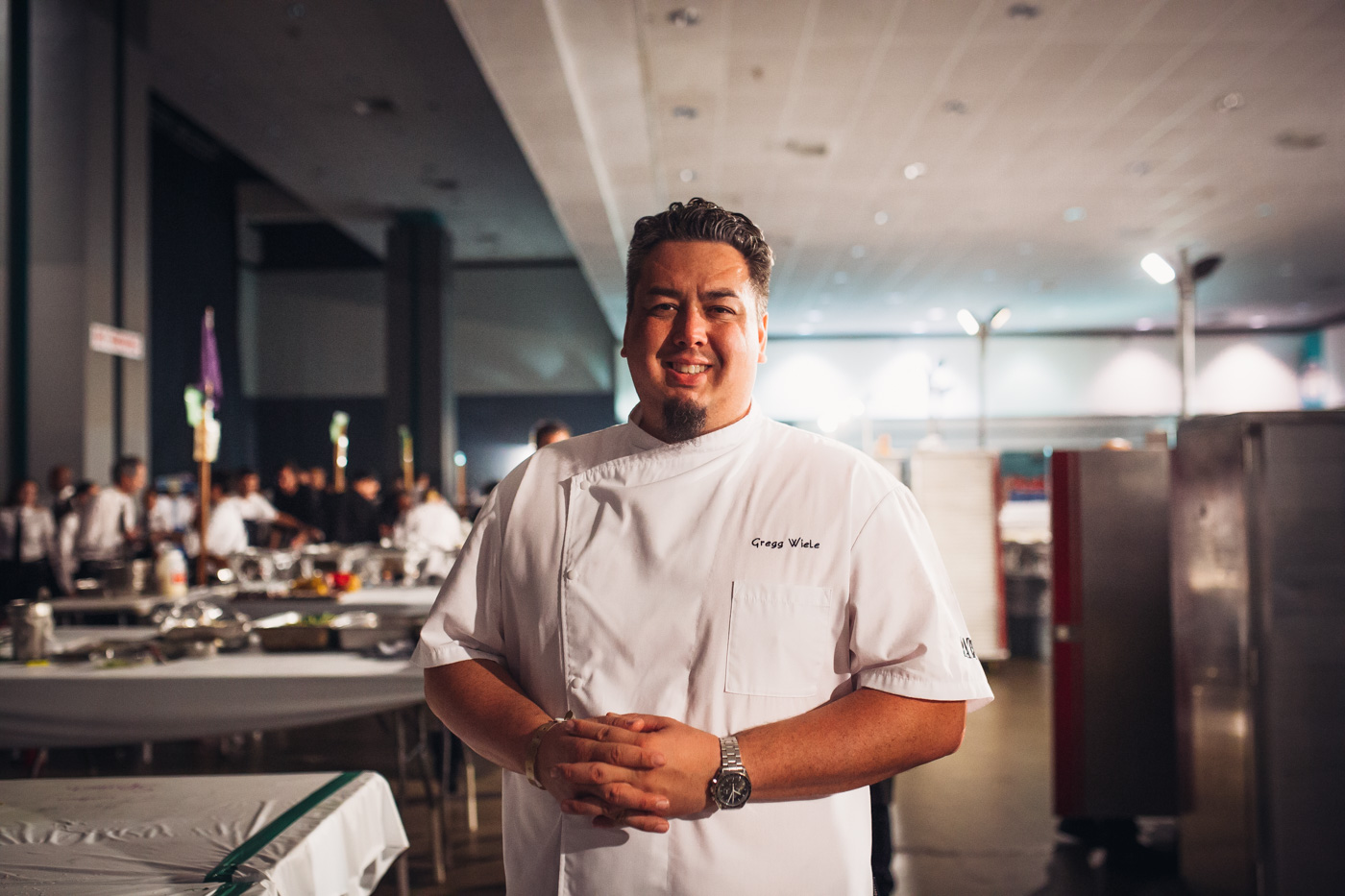
April
Through The California Endowment, the decision is made for L.A. Kitchen and Patina Restaurant Group to join forces. The Endowment, which funds nonprofits including the Public Health Institute and Homeboy Industries, played “The matchmaker—the yenta,” explains L.A. Kitchen Founder and President, Robert Egger. L.A. Kitchen’s fifteen-week job training program provides men and women emerging from prison or foster care systems with culinary and life skills that will prepare them to secure and sustain a kitchen career.
Using donated food, healthy meals are prepared and then distributed to food programs around Los Angeles, with a focus on senior poverty. Patina employs four alumni from the program, each of whom will work at September’s event. It is L.A. Kitchen’s mission that “neither food nor people should ever go to waste,” a sentiment echoed at this year’s Emmys. The event producers, Sequoia Productions, promise a commitment to environmental sustainability, using both décor and food elements that, according to the company, are either recyclable, repurposed, or bio-degradable.
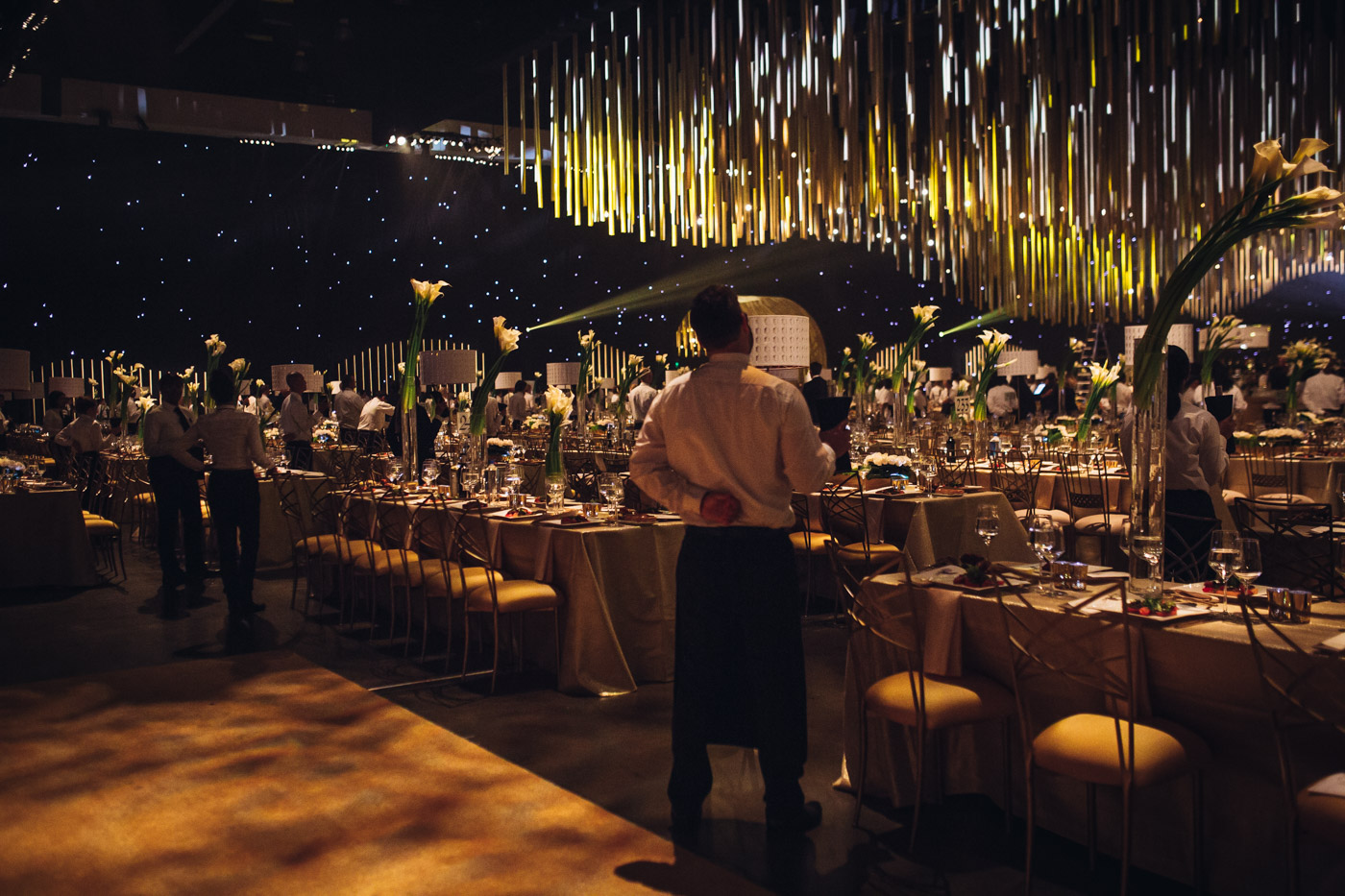
September
Patina erects two kitchens outside the Los Angeles Convention Center. Long lines of refrigerators, stoves, and prep tables all assemble under enormous tents. Although much of the prep occurs at Patina’s permanent location in Downtown L.A., final cooking and plating happens day-of in a crescendo of adept movement. But even with experience and a tightly-honed plan of attack, Splichal acknowledges that in twenty-two years of catering one of Hollywood’s most important nights, something does occasionally go wrong. Preparedness is critical, and Patina now employs people specifically to run out to the store at a moment’s notice should an ingredient run out or a guest have a specialized dietary need.
Before the first weekend of Creative Arts balls, all hands are on deck putting finishing touches on décor. The red carpet, already installed, is covered in plastic. Painters brush the exterior columns of the L.A. Convention Center with a fresh coat of gleaming white. Ficus trees roll in on dollies to cheer up the entrance. Inside, gold tubes of varying lengths hang from the ceiling in a vast art installation that seems to vibrate with significance. A ripple of awe passes through those experiencing the magnitude of the display for the first time.
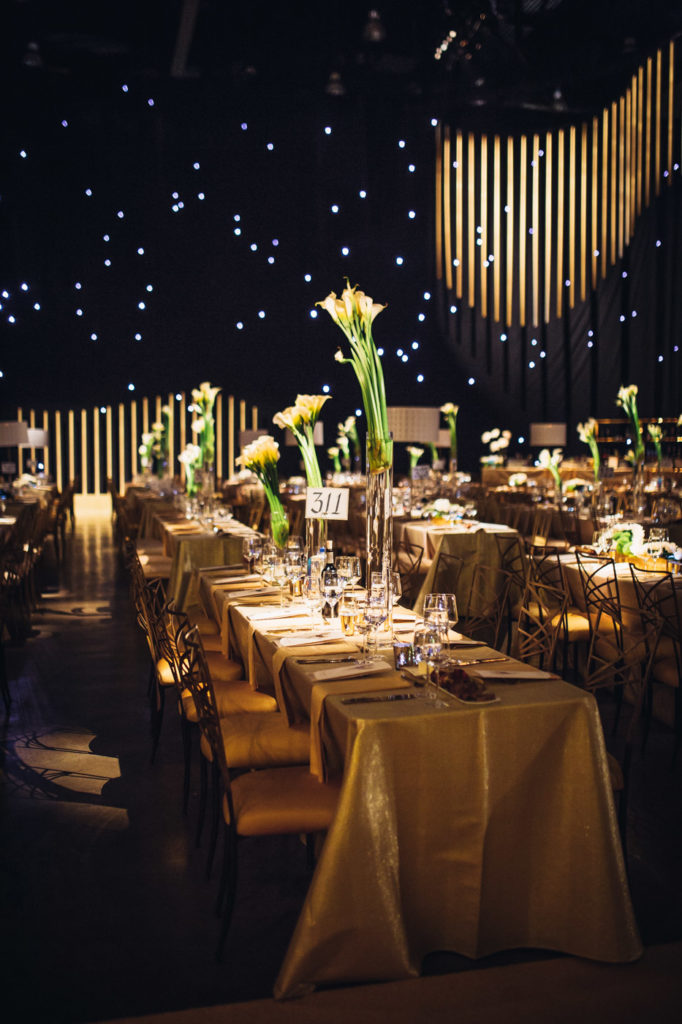
THE DAY OF
9 a.m.
Ernest Rich arrives to work. A graduate of L.A. Kitchen, Rich joined Patina after completing an internship with the organization. A self-proclaimed poster child for the non-profit, he served twenty-four years in prison for drug possession before taking part in L.A. Kitchen’s culinary training. Much in the way Chef Wiele has found similarities between the military and kitchen work, Rich observes that toiling in a prison kitchen prepared him for his current role. “I’m really disciplinary. I’ve never been late; I’ve never missed a day of work. [Those are some] of the tools I developed when I was in prison,” he says. He credits L.A. Kitchen with helping him turn his life around. “Programs like L.A. Kitchen, and what Patina is doing right now, [are] the greatest things they could do. They should have done this twenty years ago. These keys were never out there for people that wanted help. [The system] created monsters.”
He especially finds value in the organization’s efforts to provide resources and counselors for life beyond the kitchen. “This world is alien to me. By not having been in life, sometimes I can make a bad call, so it’s good to have somebody I can talk to. [After prison] I had to learn to do everything over again.” He singles out Facebook as a technology that took getting used to, but now appreciates it as a forum to share his accomplishments. “It’s good because people that care about you get to follow your journey. This year is amazing. I would have never dreamed, with the life that I was living, to be a part of [this] and meet the people I’m meeting.”
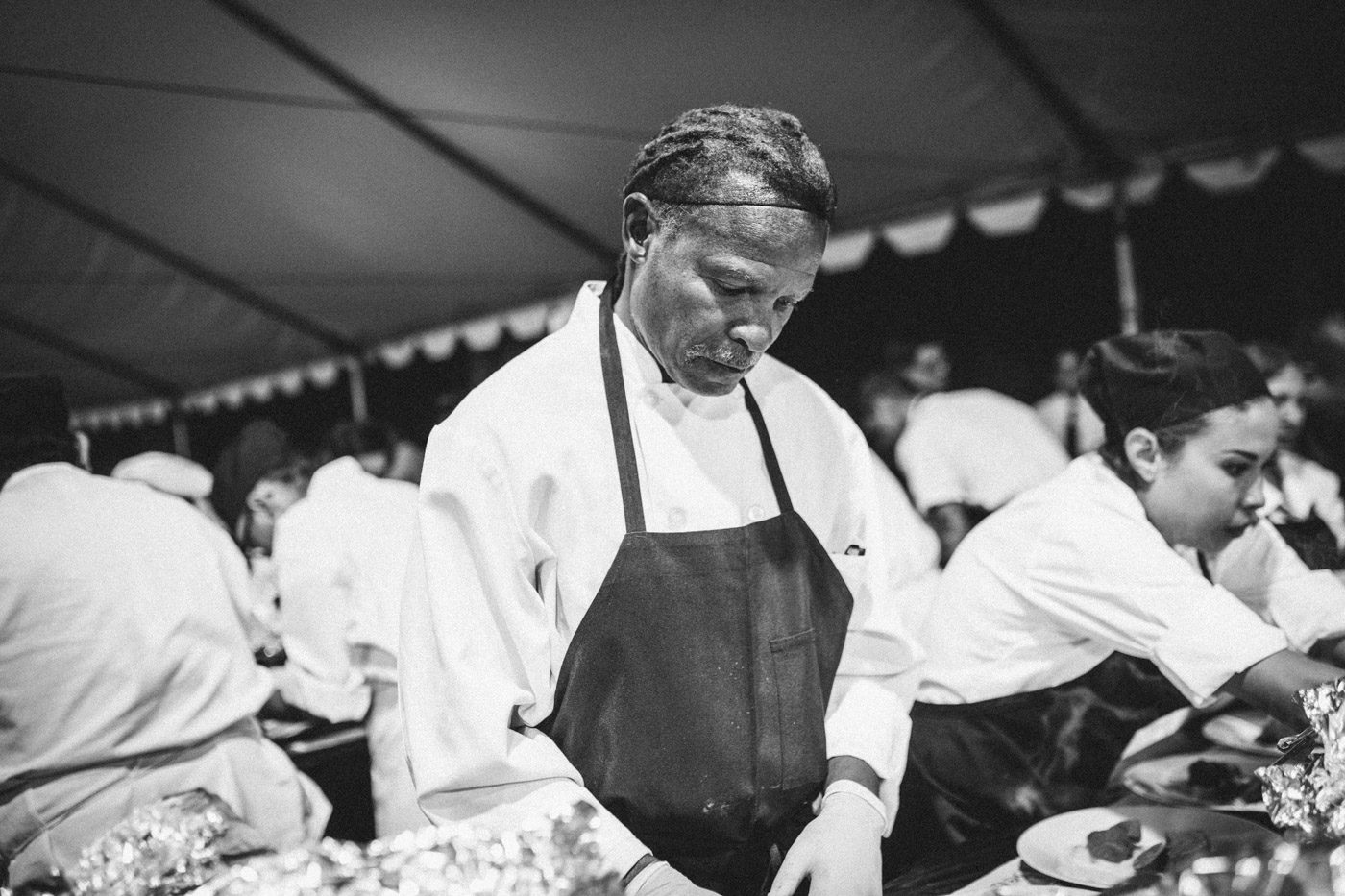
4 p.m.
More cooks have been arriving throughout the afternoon and are put to work slicing thousands of fresh tomatoes among the dozens of ingredients prepped and arranged for mise en place. Plating begins. Under the glow of tall temporary light fixtures, white dishes sit upon row after row of folding tables, six dishes across and sixty-three-dishes deep. Photos attached to the light poles give cooks a visual guide; they are to arrange three juicy cross sections of tomato, a dollop of quinoa, five perfect wedges of dinosaur heart plum, and a topping of cubed balsamic jelly and charred leek vinaigrette. Everyone works in near silent concentration. For L.A. Kitchen crewmember Edgar Flores, it’s a lesson in precision and patience. “It’s the first time I’m using tweezers,” he tells me. “First time I have to do one hundred or two hundred [dishes at a time].”
6:30 p.m.
While the award show plays out next door, those confined to the ballroom and kitchens check phones for the night’s winners. James Rich eats the staff meal, relishing the break. Like his brother, Ernest, James found his way to the Emmy ball through L.A. Kitchen. Ernest recommended him to the program and they now cook side by side at Patina’s Rise Up Café at the Endowment Center. After years of missing his brother, James is grateful for and proud of the time they spend together. He sees his stints with L.A. Kitchen and Patina as building blocks toward his dream of combining his culinary and filmmaking skills. He tells me, “To be able to go from not doing so well to being in this situation with full benefits, 401K—the whole nine yards—I find it a true blessing and I will take advantage of it.”
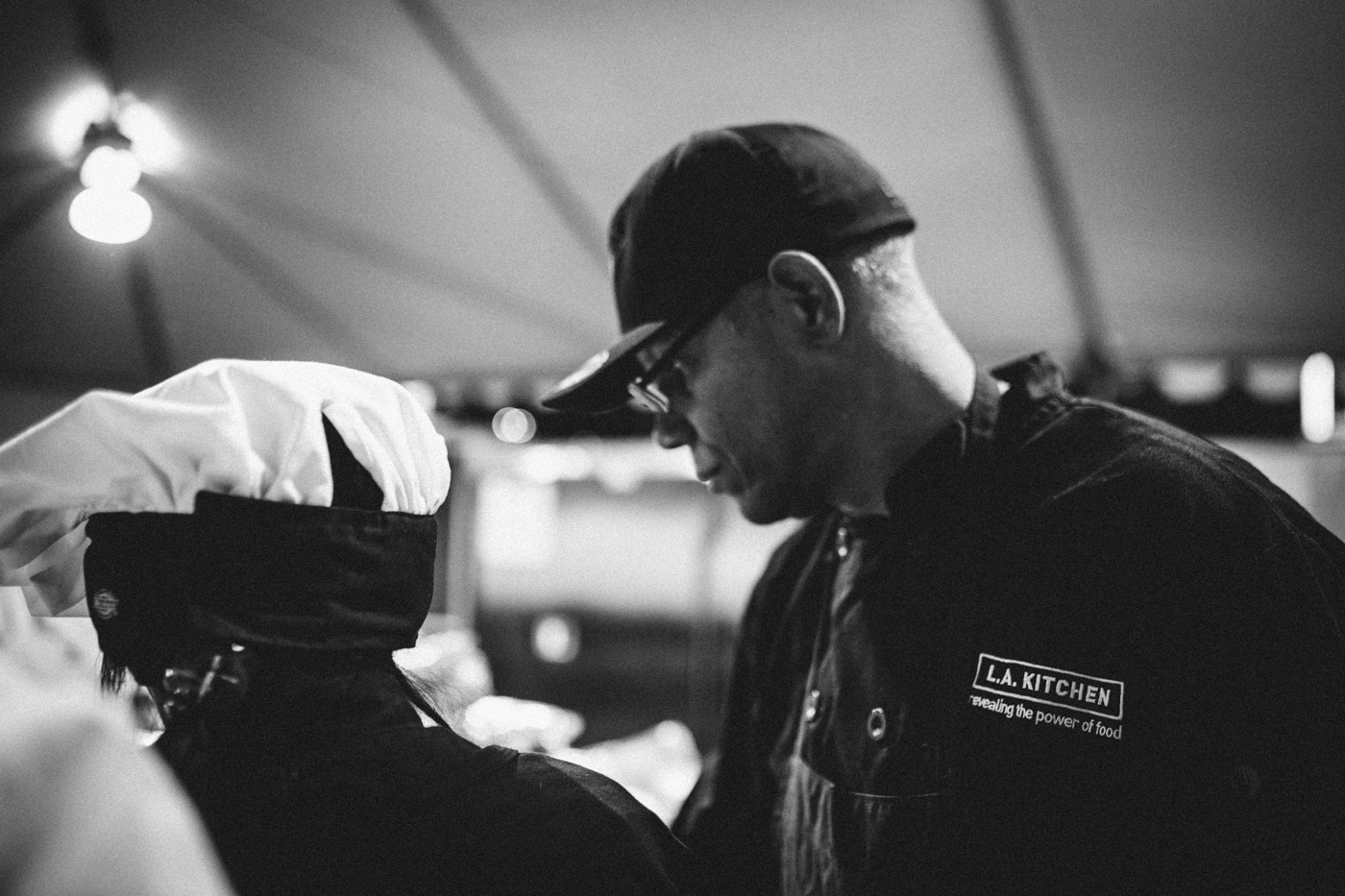
6:45 p.m.
Tomato salads leave the kitchen, two at a time, carried by servers in black and white. A never-ending train of front-of-house staff chugs by, taking close to an hour to serve over four thousand plates. Splichal observes the progress, looking at his watch; delivering the first course in a timely manner is crucial to the flow of the evening. One misstep, a few minutes squandered, and the whole rhythm of the night collapses.
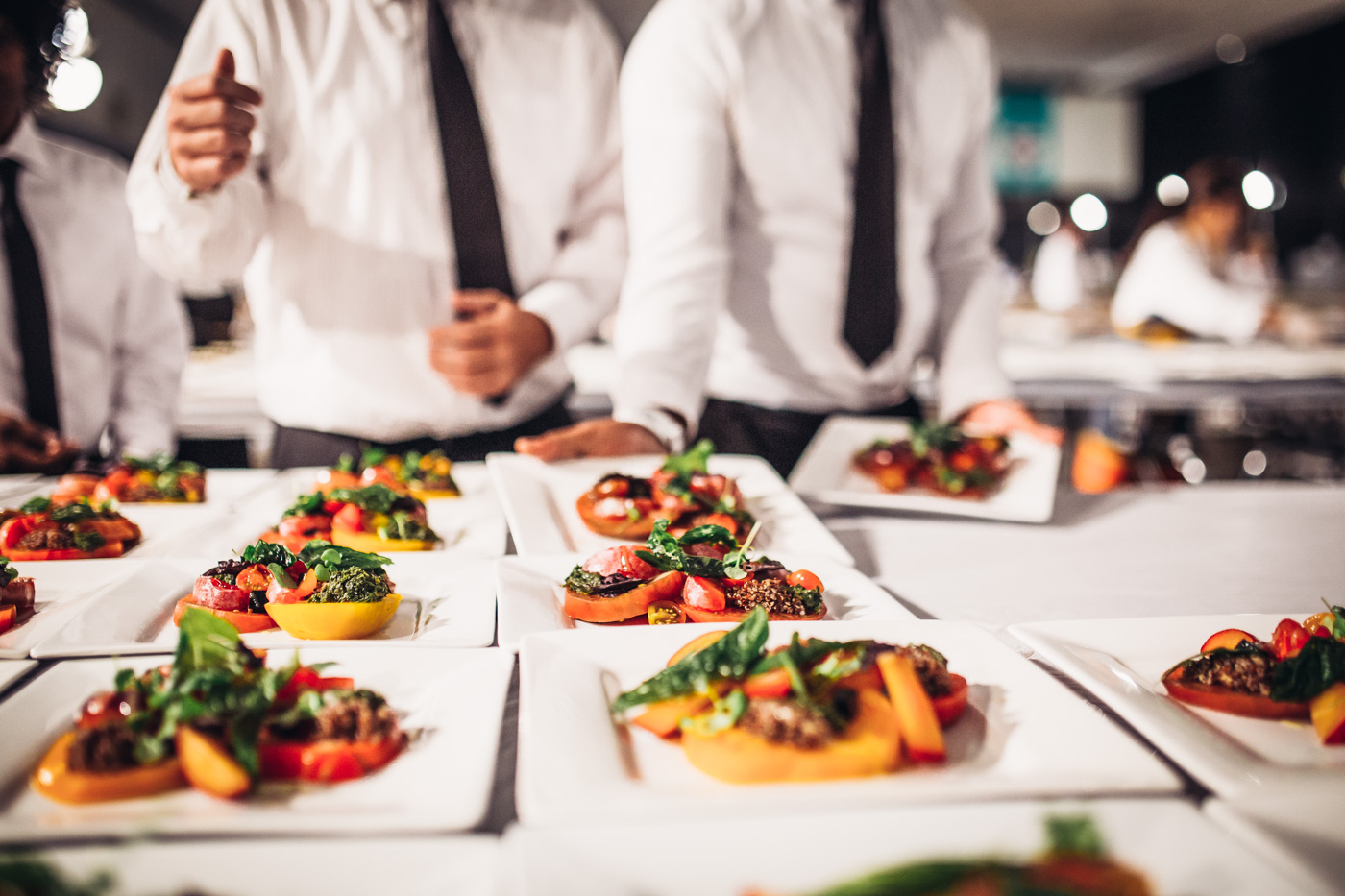
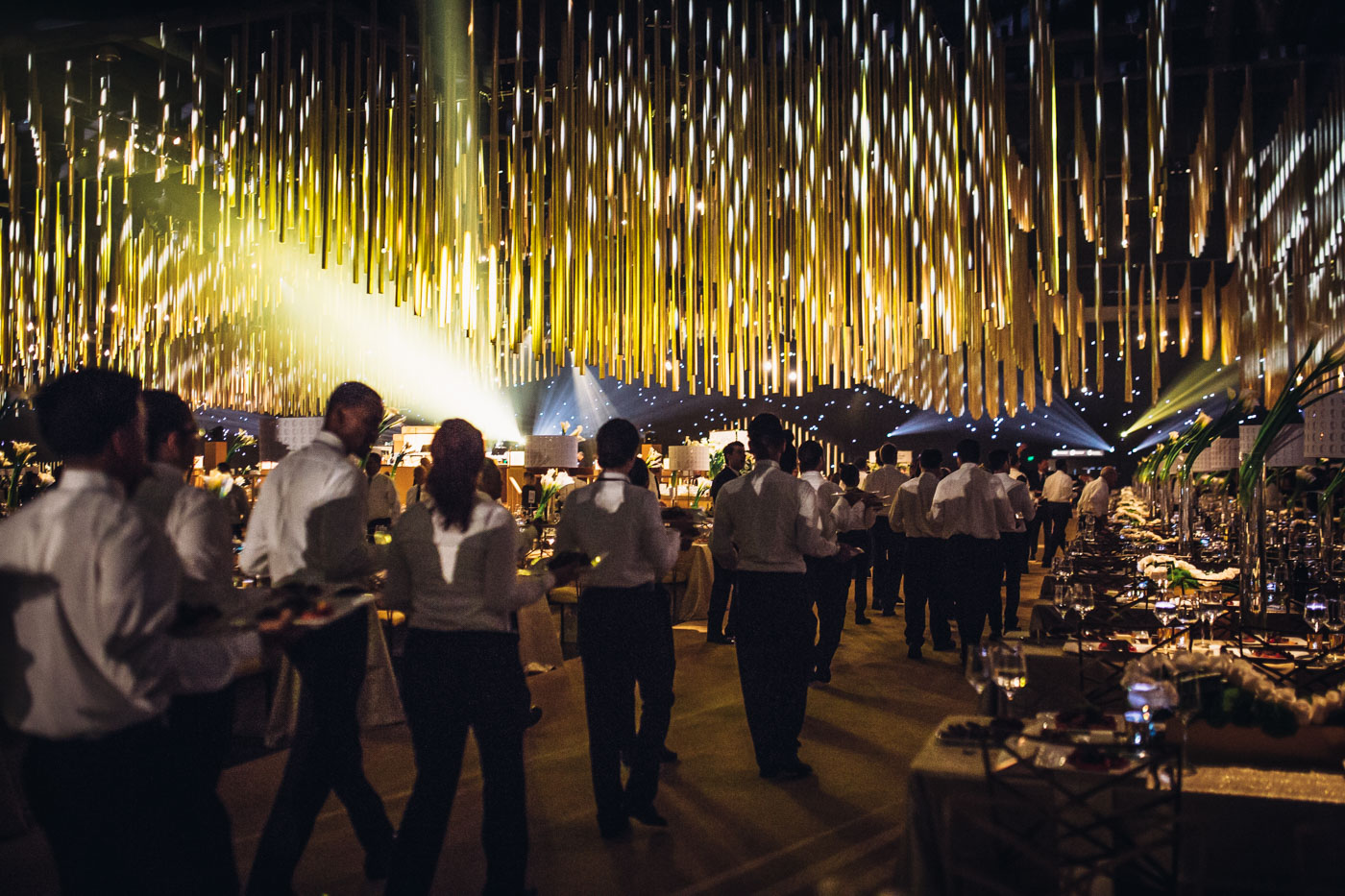
7:30 p.m.
The main course, filet mignon, enters the ovens. Splichal notes they’ve been serving a beef dish in varying preparations for twenty-two years, the protein a continuous crowd pleaser. The Governors Ball has always consisted of three formal courses, the Academy committee preferring the tradition and elegance of a seated meal. A coursed meal involves more manpower, but according to Splichal, less waste. A buffet like those at other awards shows requires about 30-percent more food to ensure displays appear bounteous. But often, they’re provisions that go untouched. For a banquet committed to zero waste, the format choice serves an even more significant purpose. At the end of the evening, Midnight Mission, an organization that provides basic necessities and resources to the homeless, receives whatever doesn’t find its way into hungry mouths.
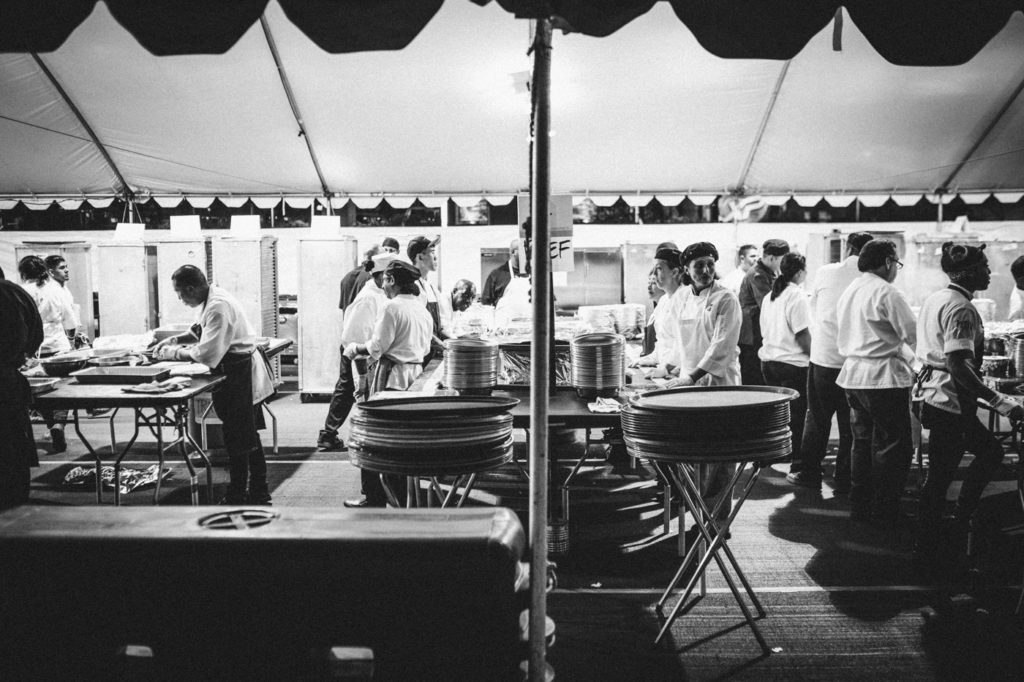
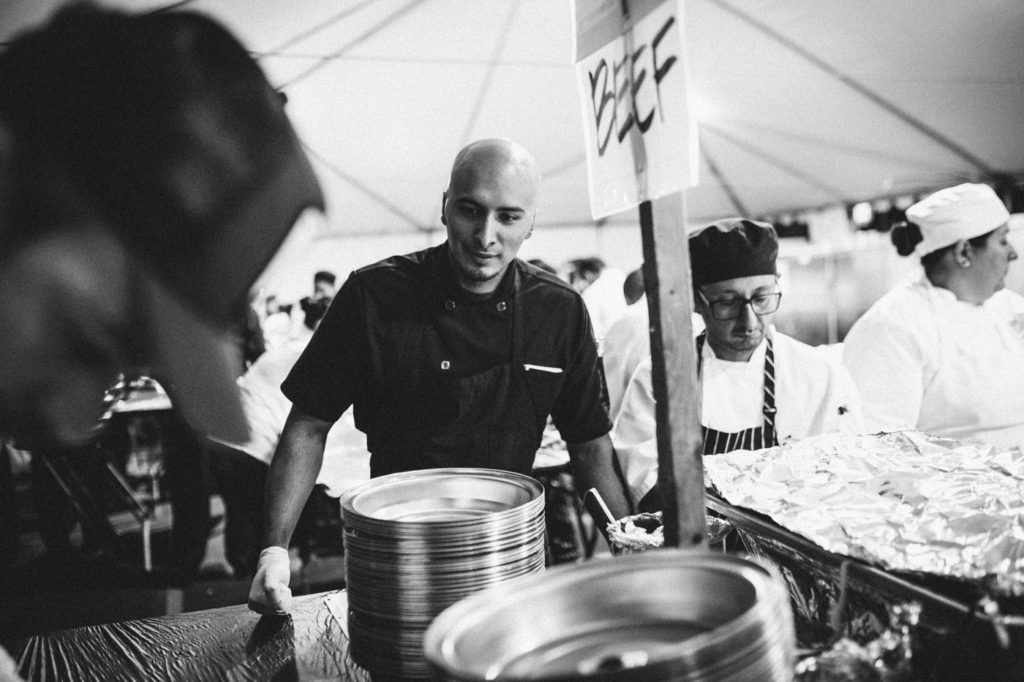
7:55 p.m.
Six hundred servers stand at attention, bottles of bubbly in hand, one at each end of every table set for twelve. Looking across the room, one could mistake them for statues, awaiting the stroke of 8 p.m. to come alive. Calla lilies, bowed as if frozen in a gust of wind, perch in tall glass cylinders. Golden ribbons of light dance lazily across the arched entrance hall, giving the impression of a gilded aquarium. Within this fancy fishbowl, women in slithery sequin gowns and radiant smiles are mermaids presenting trays of sparkling wine and premixed cocktails. On a slowly rotating podium in the center of the ballroom, a string quartet of shimmering silver ladies begin an instrumental version of The Who’s “Baba O’Riley.”


8:00 p.m.
A booming voice announces that the room is open, the doors swing wide, and winners and nominees pour into the vast space, eyes and phones trained upward. A long pause, a deep breath of chilly, cavernous air followed by a flurry of concentrated motion. In the back room, head chefs demonstrate beef plating, and at each station, a crash course in perfection begins. Filet mignon and potatoes pass from chaffing dish down the line to receive a helping of mission figs and roasted flame grapes. Each team member tasked with one job. Ernest, orange dreadlocks tucked neatly under a hairnet, swoops horseradish puree on the plate; James, a few stations from his brother, tops his puree with slices of juicy filet mignon. The last on the line tidies the edges before the plate is whisked away by an eager server.
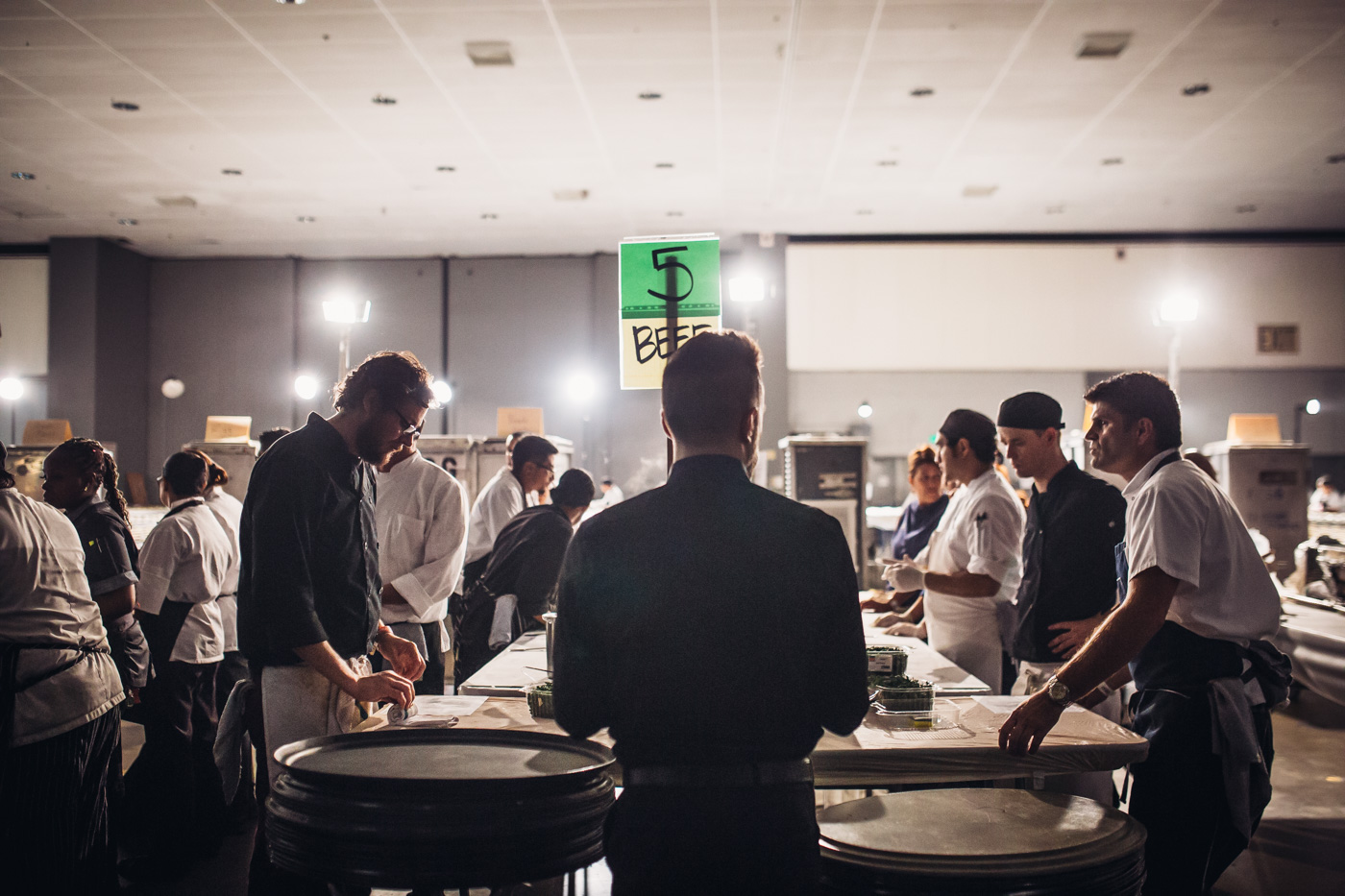
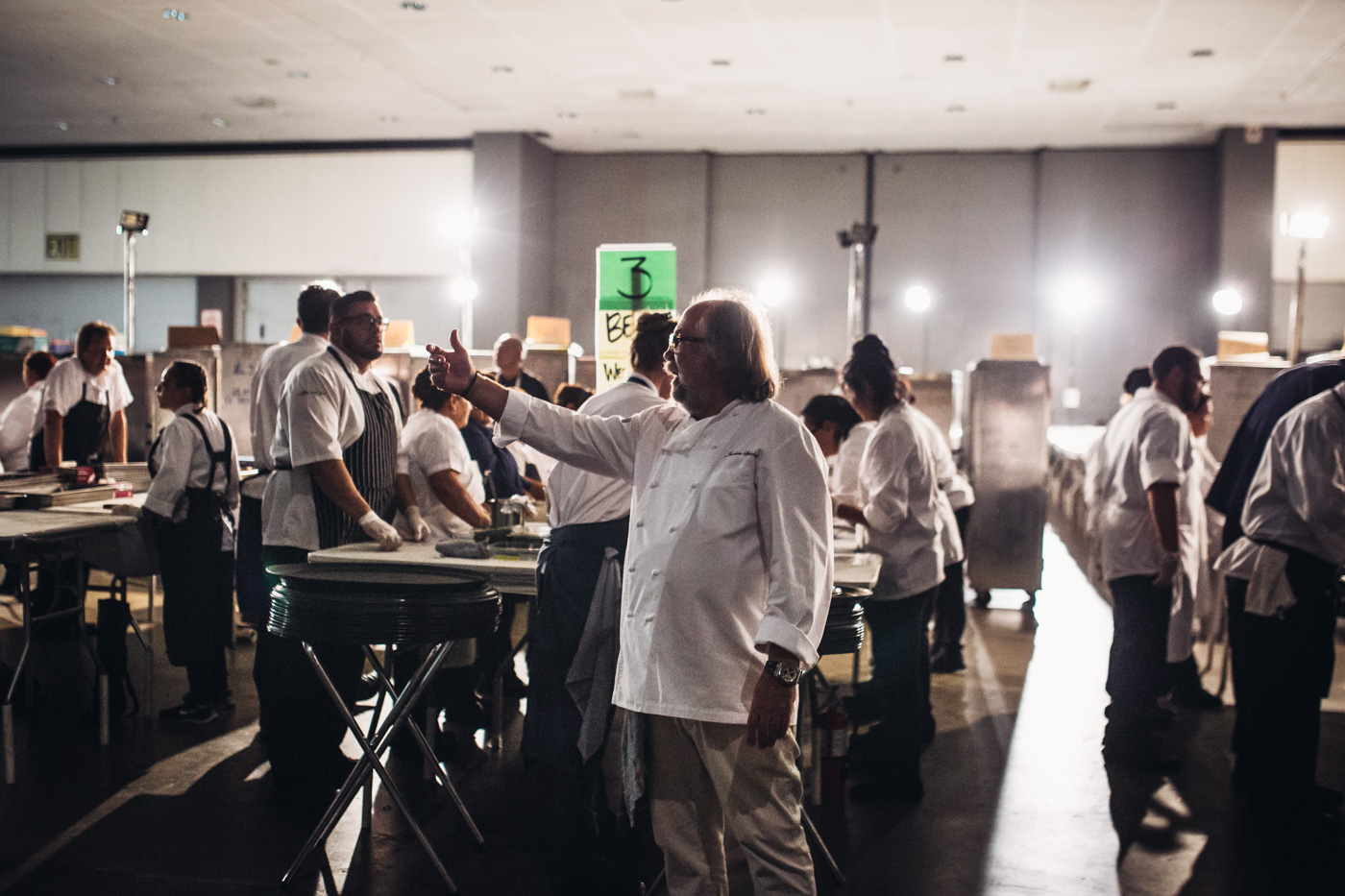
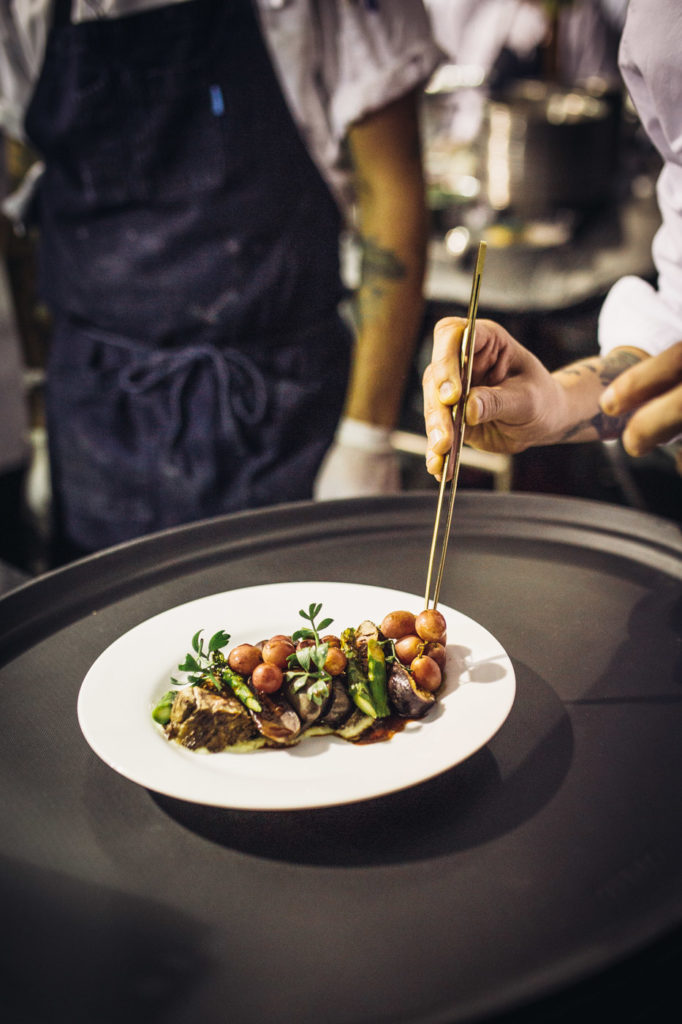
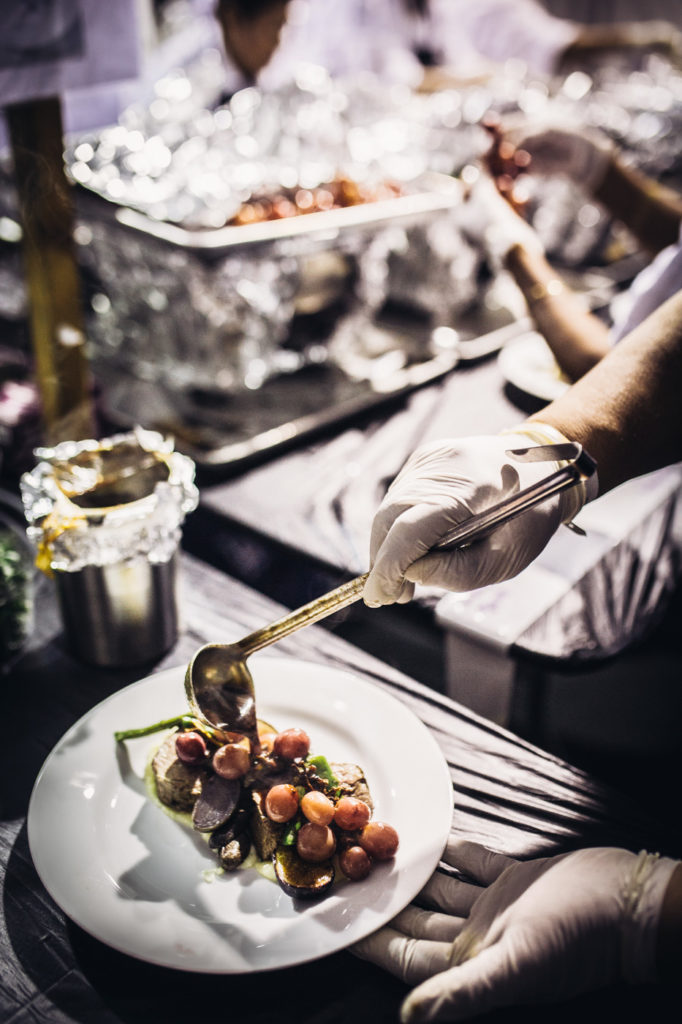
9:00 p.m.
Alec Baldwin clutches his Emmy in one hand, a winner’s bottle of wine in the other, waving them in thanks at passing congratulators. Around the room, some tables are so crowded with statues that they obstruct the chatting around them. Julia Louis-Dreyfus poses for photos. Atlanta’s Stephen Glover sidles up to the bar in a crisp white tuxedo jacket.
On the other side of the wall, the kitchen stations slow, a steady jog replaces the early evening’s sprint. After rectangles of chocolate and roasted cherry find their way methodically to tables, Splichal slips away quietly, confident his team no longer needs him.
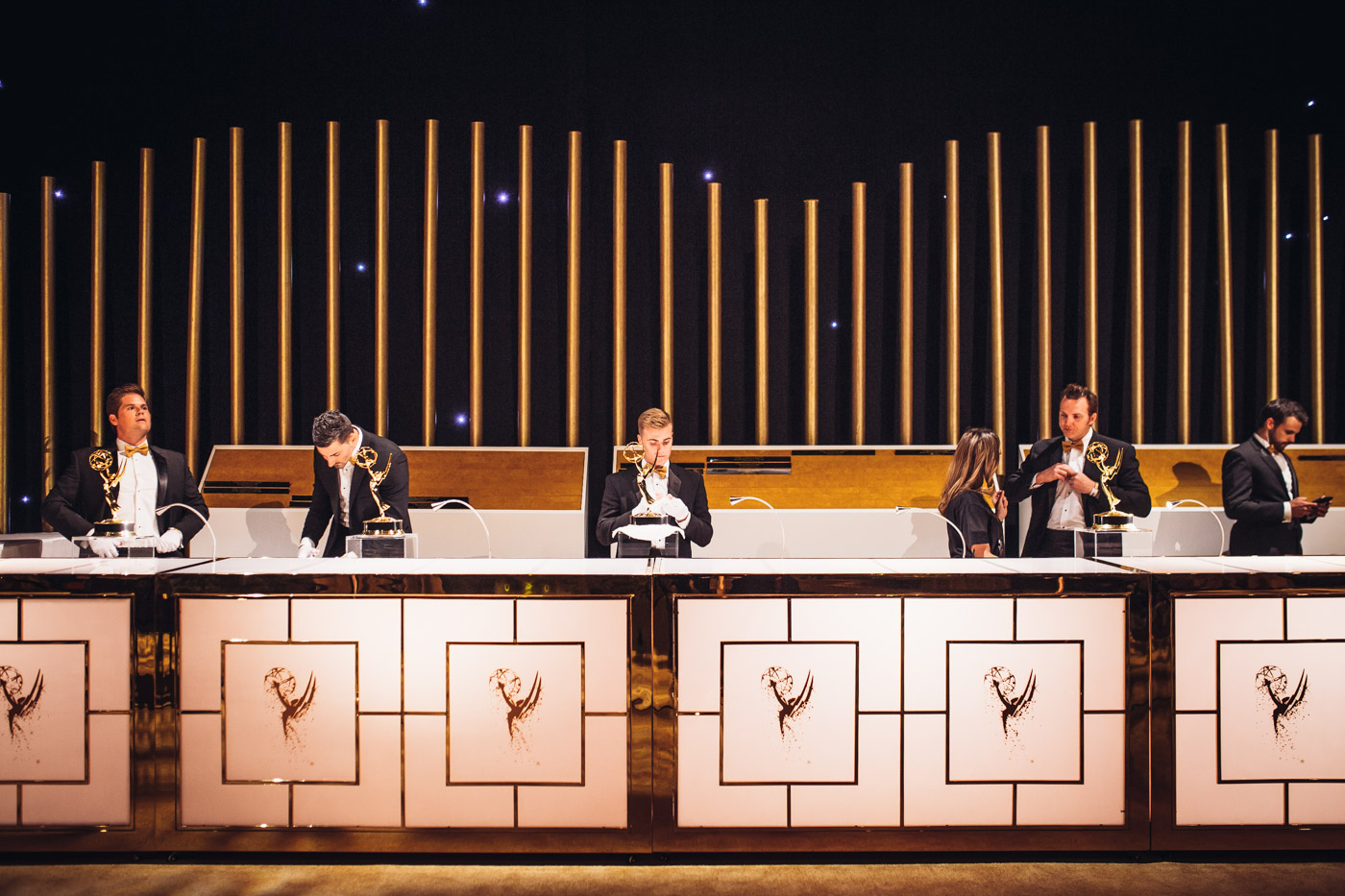
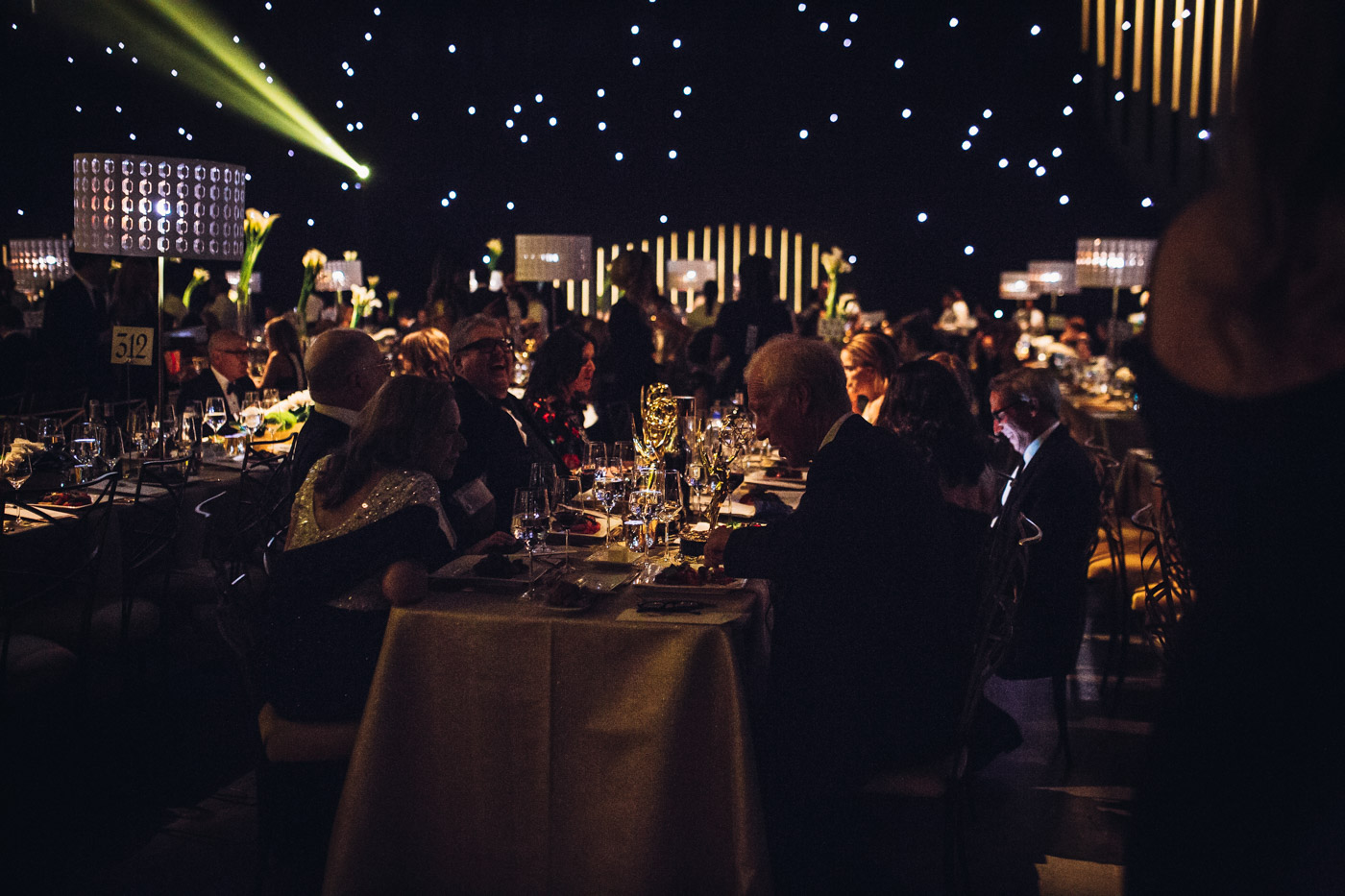

——
So much about a night like the Emmys relies on timing, and appreciating the contribution of every member of a team. All elements converge precisely, and hundreds of journeys collide in one fantastic celebration. A production that takes months to plan whirls into motion, and is over in a blur of champagne and twinkling LEDs.
It’s an opportunity to observe hard work and talent, and not only of those in the television industry. With L.A. Kitchen’s efforts, Eggers wants to change public perception of America’s undervalued populations, demonstrating the people with whom he works are powerful contributors to society. “It’s wrong to throw away this apple because it has a wrinkle, right? Isn’t it wrong to throw away a person?” His words bring the evening’s mission full circle—to celebrate and observe each detail, each ingredient, and every single human being.








Our comments section is for members only.
Join today to gain exclusive access.